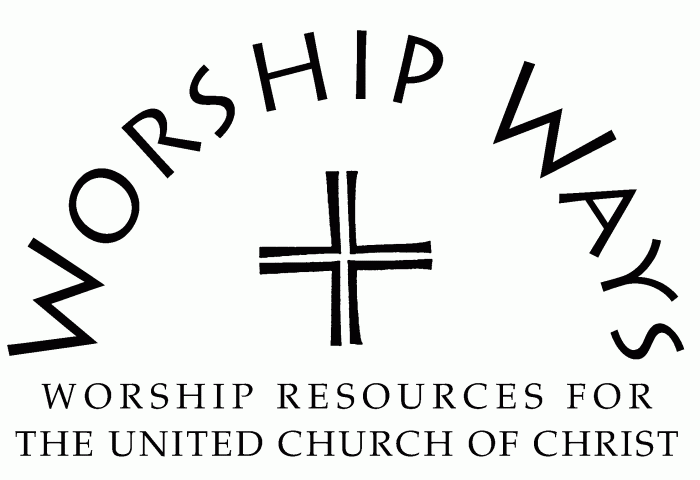Pentecost 18–September 26
I Will Survive
An Intergenerational Service
for the Eighteenth Sunday after Pentecost
September 26, 2021
Lectionary Texts: Esther 7:1-6, 9-10, 9:20-22; Psalm 124; James 5:13-20; Mark 9:38-50
Notes on Intergenerational Worship:
This liturgy includes several strategies to engage the whole congregation in considering what it takes for a community to continue into the future so that people of all ages can learn to count on one another to be proactive in the survival of the church. This theme emerges from the lectionary readings from the Hebrew Scriptures, the struggles of American Indians and other threatened groups, and the present day experience of mainline and progressive congregations. Other strategies for engaging congregants of a variety of ages and learning styles may be found at the end of this service.
Exegetical Notes:
The book of Esther tells the story of the survival of a religious minority. Behind the political intrigue and ironic reversals of this well-crafted tale, the enthralling narrative reveals a people’s fear that they as individuals and as a cultural community might not survive. The threat to cultural survival has loomed large for many religious and cultural groups in many times and places. The Jewish people, who retell the story of Esther annually at Purim have experienced this threat repeatedly, as have American Indians in the United States. Today, many congregations and denominations including our own question whether the church as we know it will be able to continue for future generations. Queen Esther, a consummate survivor, offers an intriguing answer to the challenge; be proactive about your own future. Indeed, one of the most surprising aspects of the book of Esther is that although it makes frequent mention of Jewish cultural and religious identity, it does not ever allude to God; Esther rescues herself and her people. This stands in juxtaposition with the more familiar theological perspective of Psalm 124, which praises God for saving us from many dangers. This tension that exists within the Bible is also true to human experience; we both make our own way and thank God for the circumstances that allow us to do so, recognizing that not everyone has been blessed with the same opportunities. As our church and our individual congregations look toward our own future, let us hold these two biblical perspectives in mind and be proactive in using the gifts God has given us toward our own flourishing.
HYMN All My Hope on God is Founded TNCH 408
CALL TO WORSHIP
To make this call to worship more accessible to pre-literate or visually impaired congregants, introduce the congregational response before you begin, introducing a gesture you will make that will cue their response, “We are the church together.” If this practice is new to the congregation, practice this call and response a few times before beginning the invocation, encouraging them to speak their response with gusto!
As an addition or an alternative to the leader’s words in this prayer, you may supplement or substitute with visual images of the many people and activities of your congregation, projected on a screen. The congregation then speaks the response to each image. Creating this could be a good project for a tech-savvy youth or youth group to prepare, offering them an opportunity to bring their gifts to congregational worship.
Leader: I am the church; you are the church.
Congregation: We are the church together.
Leader: We depend on our seniors and long-time members
to remember where we came from and where we have been.
Congregation: We are the church together.
Leader: We depend on our children to retell our sacred stories
as they grow.
Congregation: We are the church together.
Leader: We depend on our youth and young adults
to ask us why we do things this way
and to suggest something new.
Congregation: We are the church together.
Leader: We need each other to be the church.
Congregation: We are the church together.
PRAYER OF CONFESSION
Creator of us all,
We sometimes forget:
We forget that we are not alone,
We forget that you made us,
We forget that we have had help along the way,
We forget to ask for what we need.
Embodied God,
Remind us that we are surrounded.
We are surrounded by the people you have created,
And by the many gifts you have given them to share.
Remind us of our own gifts,
And the ways we may use them in community.
Suffering Savior,
We confess that in our own struggle to survive,
We have ignored other communities.
We have forgotten that they too have the right to survive.
Make us mindful. Make us compassionate.
Help us to see you in one another.
In your name we pray, Amen.
ASSURANCE OF PARDON
Leader: Beloved in Christ, know that you are God’s own
and that through divine love you are freed to begin anew
the work of living together in compassionate community.
MULTIGENERATIONAL SERMON ACTIVITY
Depending on One Another in Community
A Multigenerational Sermon Activity is an interactive activity that can introduce, conclude, or be integrated in a sermon so as to encourage a more embodied experience for people of all ages. It may also be used as a children’s sermon, but is most effective when broad participation is encouraged.
Title: Without You
In the Christmas classic, It’s a Wonderful Life, George Bailey has the opportunity to know the difference he has made by observing what his community would be like without him. Few if any of us truly know the impact we make, and rarely do we share with others how much they matter and how much we depend on people of all ages and abilities in our congregations. For this activity, ask the congregation to look around at one another and think what their lives and their community would be like without each of these people. Encourage them to include a variety of people, including those who are not present at this particular worship service. After they have had some time to consider this (you may want instrumental music during this time so that it does not drag), encourage individuals to speak out loud the contributions others have made to their lives and the community, completing the phrase, “Without (name)�.” For introverted congregants make slips of paper and pens available to for written participation in this exercise. A few younger children can collect these slips of paper to be read out loud. Older children or youth can walk around with microphones if you have a large worship space and/or read the written contributions out loud. Conclude the activity by noting that each of these people is using their God-given gifts to keep the community going and that we all need one another to continue to be the church together.
HYMN They Did Not Build in Vain TNCH 373
CALL FOR THE OFFERING
Having recognized the many gifts we bring and receive from one another,
let us share what we have in gratitude.
PRAYER OF DEDICATION
May these tangible gifts
and all the intangible gifts we share among us
make known to the world that God is within us and among us.
HYMN We Would Be Building TNCH 607
BENEDICTION
Today and every day,
take care of one another,
knowing that each of you is God’s gift
to this community and to the world.
I Will Survive, An Intergenerational Liturgy for the Eighteenth Sunday after Pentecost, was written by the Rev. Dr. Laurel Koepf Taylor, Eden Theological Seminary, Saint Louis, Missouri.

Copyright 2021, Faith INFO Ministry Team, United Church of Christ, 700 Prospect Avenue, Cleveland, OH 44115-1100. Permission granted to reproduce or adapt this material for use in services of worship or church education. All publishing rights reserved.
5 Ways to Welcome Children in Worship*
The Rev. Dr. Laurel W. Koepf Taylor
Engage the Senses
Your worship service already engages multiple senses in more ways than you realize! Emphasize this and come up with more ways of creating active, multisensory worship that will be authentic to your congregation’s worship style. Doing this will welcome children as well as a wider range of adults!
Provide Sabbath Toys
When we think of Sabbath Toys, we usually think of our Puritan roots, when children were only allowed to play with Noah’s Ark on Sundays. Revive this old tradition with a twist! Provide soft toys that follow the liturgical seasons or the theme of the day’s worship so that children’s play will be a part of the community’s worship, not a distraction from it! Biblical felt pieces or a pictorial worship bulletin are simple ways to get started.
Go Beyond Children’s Sermons
We communicate our welcome of children in worship most clearly in the liturgical actions we value most in our tradition. Invite children to take lay leadership roles in worship and make sermons accessible through conversational style, team preaching, sermon activities, and preaching illustrations that appeal to a variety of life stages.
Encourage Church Family
Extended families rarely live close to one another anymore but people still need intergenerational relationships and support. Church is a great place to provide this! Members of the extended church family who wish to experience spiritual renewal by worshipping with a child can volunteer to give tired parents a break on Sunday morning.
Be sure to oversee this practice in a way that complies with safe church policies.
Include Children in the Full Life of the Church!
Adults and children will be more tolerant and loving of one another if they know each other as people. Encourage children’s participation in church life and create opportunities for friendships to grow across generations.
*Prepared for the Your Church, Better workshops at General Synod, 2011, Tampa, Florida
![]()
